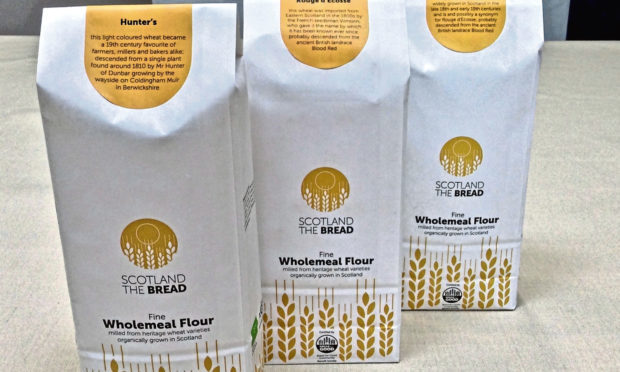A not for profit company will set up a new milling operation in Fife as it seeks to improve the nutritional quality of Scottish bread.
Scotland The Bread is a collaborative project to establish a Scottish flour and bread supply that is “healthy, equitable, locally controlled and sustainable”.
It is the antithesis of the industrial flour making process which causes grains to lose nutrients.
The new mill — and accompanying bakery — will be set up within a unit at a hub for food and drink producers at the Bowhouse farm steading near St Monans.
Instead of industrial roller mills or traditional stone mills, the enterprise will use a high tech piece of German-made machinery called a Zentrofan cyclone mill, which blows the grain inside a small chamber made from basalt lava rock.
Andrew Whitley, chairman of Scotland The Bread, explained: “We are the first UK owner of a Zentrofan mill.
“It uses a strong fan to burl the grain around the chamber until they degrade into tiny particles of wholemeal flower at which point they are light enough to be blown into a collecting chamber.
“It’s a very energy efficient way of producing flour as it doesn’t spend time and energy stripping the wheat of all its goodness.
“It also fits in with our aims of generating quality from soil to slice.”
Currently operating from a farm near East Linton, the firm will use locally grown wheat when they move to Fife in September.
Mr Whitley said two direct jobs will be created from the operation to make and sell flour and bread at the Bowhouse.
However, he hoped it could also support farmers and other bakers who can use the flour.
“We are aiming to move the mill by September 8 in time for a food market event and then up our production as we come into the harvest,” said Mr Whitley, who has written books on the breadmaking process.
“We are a non profit company but we want to make the milling operation into a generator of some revenue so we can use it to support our research and public engagement activities, notably growing grains with community groups in community gardens.”
The enterprise has been assisted by the Just Growth funding programme which supports social enterprises produce food in an environmentally and socially just way.
Through this programme, it received a £20,000 loan from Community and Co-operative Finance, a £20,000 in grant funding from the Esmee Fairbairn Foundation and also raised £36,000 in a crowdfunding campaign.
